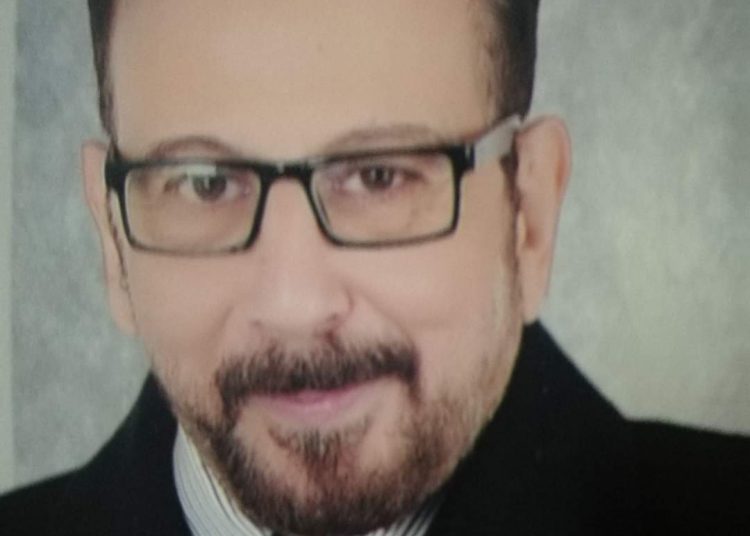By Abdel Monem Fawzi
Stories of poverty, corruption, conflict and disease are the enduring stories told about and within the continent, leading to narratives of an Africa and a people that are broken, lack agency and are in constant need of help. The problem is this image controls our imagination about ourselves.
what we don’t know is that Africa today has become an emerging destination for investment, with high GDP growth, an increase in peaceful elections, stability, and the spread of technology. We need to ensure that good stories break through and that Africa is presented in a more nuanced and contextualised way that reflects the continent today. With a clear but ambitious mission, Mwanja Ng’anjo did in her platform #Being African In Africa .
She said: “My work as a communication professional for more than a decade now has taken me to over 20 countries in Africa. When I meet and interact with new people from different corners of the continent, I marvel at the stories they have to tell – about themselves, the people they live with, their communities and the lives they lead.
News that seems to sell covers crime, corruption, drought and the like — all somewhat depressing. Important, yes, but many, too, are the positive stories and events that do not receive coverage, both on and off the continent.
BAIAfrica (Being African In Africa) is an initiative for sharing positive content and narratives for more balanced and fresh perspectives of life on the continent.
I received an invitation to attend the Gates Foundation Goalkeepers event in Johannesburg, South Africa, on 1 December 1, 2018, on the eve of the Global Citizens concert. My take-home message was a brief but succinct delivery by actor, playwright, director and philanthropist Tyler Perry.
The world-renowned Tyler Perry said he grew up in a home with his mother who would always provide for people in need right under their roof. There would be people in their parlour, kitchen and porch. When he asked his mother why she did what she did, even though she did not have much herself, she simply told him, “When you get, give!”
The celebration of the Sustainable Development Goals (SDGs) ‘Goalkeepers’ in Johannesburg brought together a new generation of leaders from all corners of the world to focus on what it will take to achieve the Global Goals by 2030.
Some of the inspiring speakers that we heard included, Dr Precious Moloi-Motsepe from the Motsepe Foundation, Graça Machel, founder of the Graça Machel Trust and political leader, UN Deputy Secretary-General Amina Mohammed, Mark Suzman, president of Global Policy and Advocacy, Gates Foundation and several young leaders from across Africa.
So, what exactly is Goalkeepers? Goalkeepers is dedicated to accelerating progress towards the Global Goals: using powerful stories, data, and partnerships to highlight progress achieved, hold governments accountable and bring together a new generation of leaders to address the world’s major challenges.
The remarkable work of the winner of the Global Goal Award in Africa, Kenyan anti-Female genital mutilation (FGM) champion Natalie Robi Tingo, for me brings home Tyler Perry’s mother’s lesson on what it means to give of who you are, “When you get, give!”
The ritual of cutting female external genitalia (partially or completely) is practised in Africa, Asia and the Middle East. The Founder of Msichana Empowerment Kuria, an organisation that she started when she was only 19, Natalie believes change is possible, and it has to happen. Through her organisation, Natalie now reaches more than 30,000 people in her community in Southern Kenya. Also through the impact of her work, Natalie has demonstrated that it does not take much to give to others in order to make an impact. You only need to start with what you have, where you are, and get on with what needs to be done.
Christine Ghati, the young lady who received the Global Goal Award on behalf of Natalie, gave a moving testimony on what it takes at times to make a real difference in this world and to have a lasting impact and legacy. Christine is also an anti-FGM champion, who works untiringly to change attitudes in her community in order to stop FGM, which is deeply entrenched in the culture of the people. This, as I and others in the audience were soon to learn from her, is no easy feat. “My inspiration comes from my father,” Christine said, with tears streaming down her face. “When I was 8 years old, he protected me and my sisters from FGM and was killed because of it.” Christine and Natalie, and many others like them on the continent, bring to life what it means to make this world a better place. All it takes is one individual at a time, taking the brave decision to make a change in their community. The sum of all individual actions and efforts, together with those undertaken collectively, do make a difference in millions of lives.
Encounters with people from all walks of life, who do their best to make a difference in their societies, make me concede that maybe, the ideals in frameworks for development such as Africa’s Agenda 2063 and the SDGs might not be so lofty after all. Not when champions who exemplify those ideals live with us, right in our own neighbourhoods. So for me, it all starts with giving of whatever it is that you have, be it your time, talents or other resources. Tyler’s mother was so right!
At the end of the day, Graça Machel put things beautifully into context when she spoke on how to build a movement. What she said also still reverberates in my head, “You need to team up with those who have a similar goal as you. You can start as a drop but grow into a river with others”. Now that to me, is profound African wisdom.






Discussion about this post